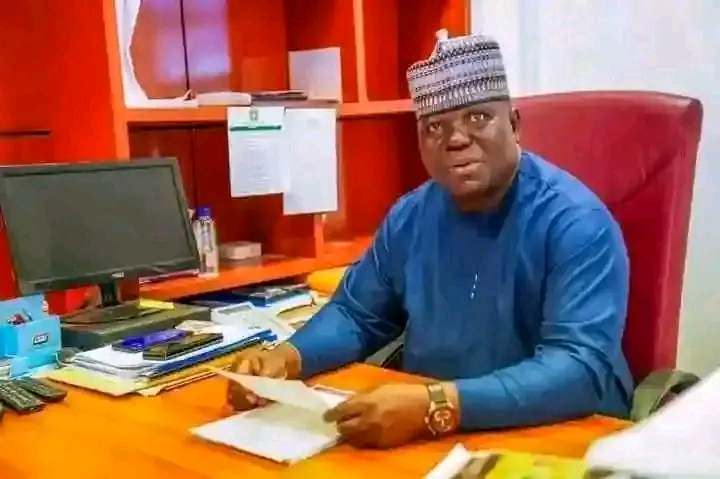News Analysis By Abdul Lauya
As Gombe South inches toward the 2027 general elections, one name is resurfacing with growing resonance across the senatorial district, Senator Bulus K. Amos. Known for his quiet strength, legislative commitment, and community-centered agenda, Amos’ truncated tenure in the 9th National Assembly has now become a rallying point for a people yearning for meaningful representation and continuity.
Senator BK Amos, who represented Gombe South from 2019 to 2023, is widely regarded as a breath of fresh air in the region’s political landscape. His one-term stint, though brief, was marked by legislative visibility, community outreach, and a sense of purpose many now admit has gone missing under the current representation.
The problem, however, is not new. Gombe South has developed a disturbing pattern, a political culture of discarding senators after just one term. This habit has not only robbed the zone of experienced lawmakers but has also disrupted legislative momentum, denied the district long-term federal presence, and weakened its voice in national politics.
Analysts describe the Senate as a place where legislative mastery takes time. The first term is often an apprenticeship, learning procedures, building alliances, understanding the committee system, and designing long-term policy strategies. It is usually the second term and beyond that delivers tangible results. Yet Gombe South, unlike other regions, has not allowed its senators that space to grow and give back.
Amos’ early exit in 2023, despite his promising start, was widely seen as a missed opportunity. His replacement, Senator Anthony Siyako Yaro, now faces sharp criticism for what many call “underwhelming performance,” a development that has reignited the people’s call for a trusted and tested hand.
The slogan “Dawo-Dawo”, Hausa word for “Come Back-Come Back”, has gained momentum among grassroots stakeholders, community leaders, and youth groups who believe that BK Amos deserves a second chance. Not for sentimental reasons, but because Gombe South cannot afford another experimental term.
In contrast, regions like the United States allow lawmakers decades of service, resulting in deep legislative expertise, institutional memory, and political leverage.
Even within Nigeria, senators who return for multiple terms wield more influence, attract federal projects, chair key committees, and speak from positions of strength. Gombe South has yet to tap into that advantage.
It is in this context that the return of Senator Amos is being framed not merely as a political comeback, but as a strategic necessity. “We don’t just need a senator; we need someone who already knows the terrain, who won’t need four years to start learning again,” one Balanga youth leader stated.
If Gombe South is truly serious about development, the time to break the one-term curse is now. And the path forward may well lie in bringing back the man who had only just begun to chart that course, Senator BK Amos.


